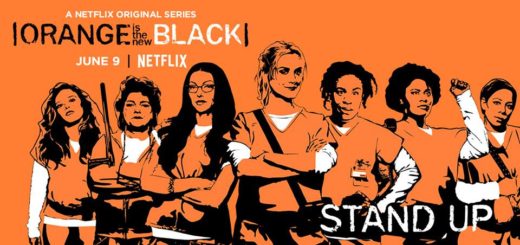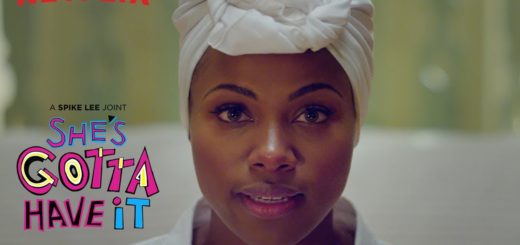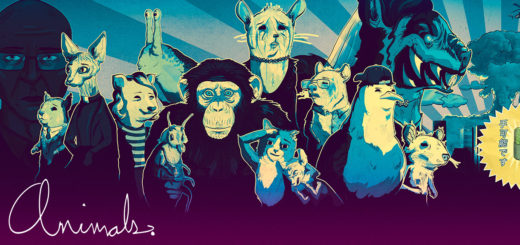LOVE Season Two Review
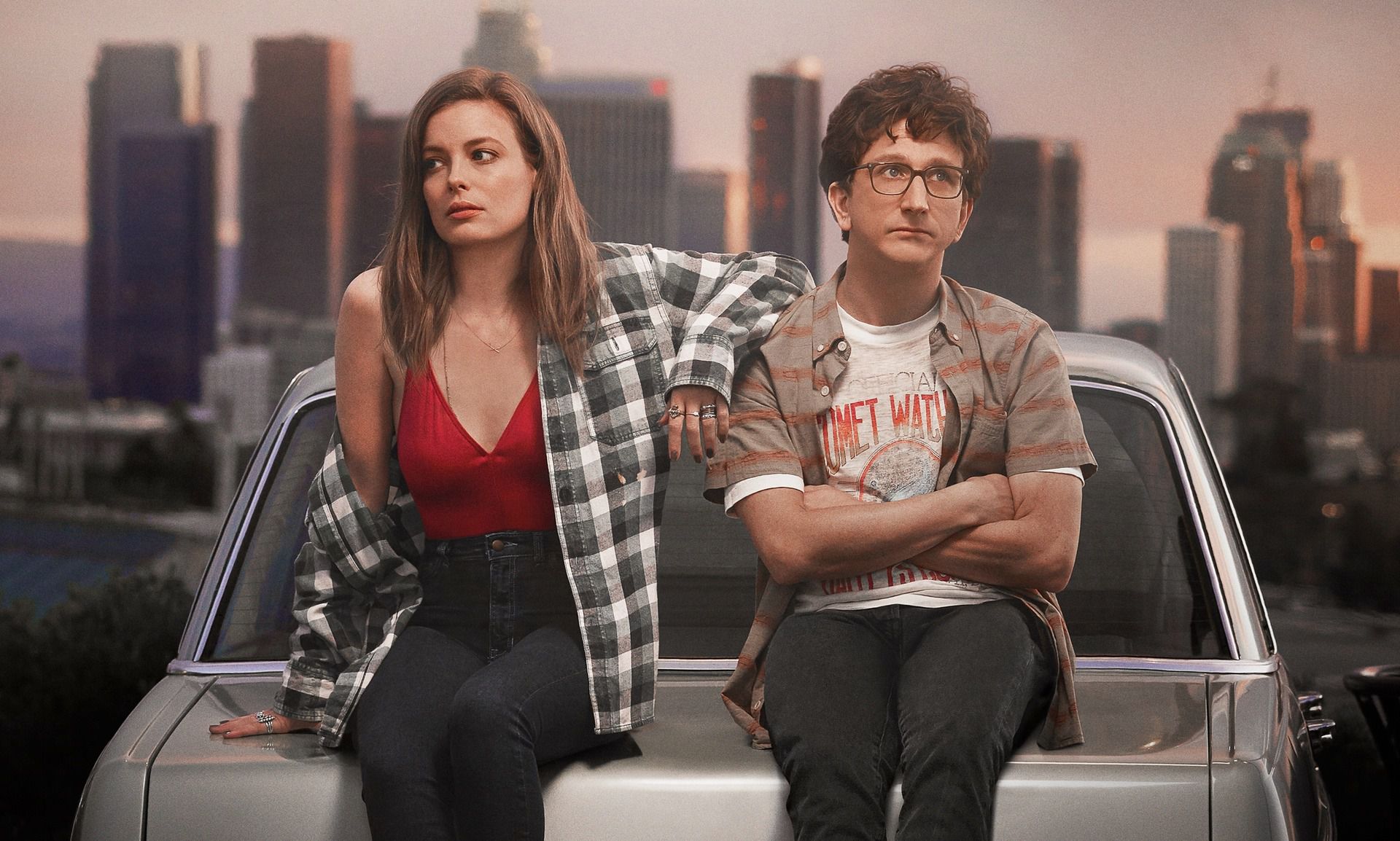
I have a habit of starting out my commentary on Netflix original series by pointing out that I don’t usually like Netflix original series, so one more time for the people in back: I don’t usually like Netflix original series. I often find them half-baked shots in the dark hurriedly cobbled together with little care or authorial presence in a “see what sticks” mentality. However, that’s what makes LOVE stand out all the more. An unassuming but quietly stellar unsung gem of the Netflix catalog, LOVE can be described as the more accessible EASY, featuring stark, often painful emotions, plenty of time set aside to focus on humor, and the loose, improvisatory predilections of its comedy dad Judd Apatow. It’s never going to win an Emmy and it’s not flashy enough to ever grab the attention of a national audience at large, but the second season of LOVE proves that it’s still hitting all the right beats: self-confidence, complex characters, and an assured and nuanced look at the emotion that keeps life worth living.
LOVE picks up right where it left off, with Gus (Paul Rust) and Mickey (Gillian Jacobs) reuniting in a gas station parking lot after the huge humdinger of a fight that ended season one. While the two seem to have reconciled most of their differences, Mickey is still wary of officially recoupling, insisting that the two just stay friends as she attends meetings for her various addictions and gives the ol’ college try to the timeless “figuring yourself out.” Of course, these two star-crossed lovebirds can’t stay apart for too long, and as the episodes roll on, they’re thrown in a variety of different situations that’ll test, nearly derail, and ultimately strengthen their relationship.
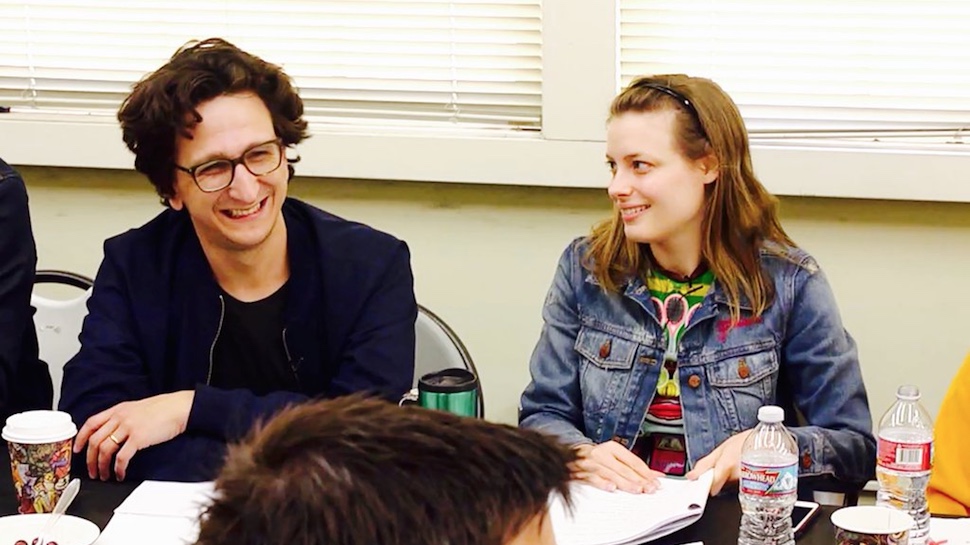
Paul Rust holds the unique honor of having both the most lovable and punchable face of anyone on the entire Earth
Yeah, it doesn’t sound the most exciting from that very general synopsis, but for a Judd Apatow project set in Los Angeles’s Echo Park neighborhood, what kind of bombast and scope were you predicting? While there are certainly more scripted episodes (but more on that later), LOVE has an assured naturalism thanks to its lack of anxiety over having our characters mostly just go about living their lives. As a character study, it’s hard to find comedy content that does it better, as the relative mundanity of the daily existence of our leads leaves ample room for subtle shifts and turns in internal arcs and behavior. The most “LA thing” that occurs is that Gus works as an on-set tutor for the fictional television program WITCHITA, but in line with the first season, his experiences on set are all mostly just backdrops for catalysts of personal development, with a welcomed absence of the industry-related navel-gazing or cynicism that often plagues similar SoCal soliloquies. Because the scripts never stretch themselves to be anything more than the sprawling tale of two damaged people in a relationship in LA, we get a fully realized understanding of the damaged people and relationship in question.
Part of the reason why LOVE is so gripping is the fact that it makes you despise Gus and Mickey as much as it makes you root for them to work things out. Both constantly struggle with their self-absorbed and self-destructive impulses, each hopelessly wrapped up in a laundry list of insecurities and shortcomings. Gus is still neurotic and controlling to a fault; while it’s obvious he clearly cares the world for Mickey, it makes it all the more frustrating as we see him struggle with his gut impulse to micromanage Mickey’s life in a way that he believes will be the best for her and their relationship as she begins to seriously pursue sobriety and self-improvement. It’s perfectly reasonable and superficially beneficial to want your significant other to get the monkeys off their back, but as Mickey begins to notice, it’s a fine line between care and condescension. Perhaps the most telling moment occurs during episode 10, “Liberty Down,” when Gus and Mickey get into another huge argument over Skype. Gus has been away in Atlanta for a month tutoring the young actress Arya (Iris Apatow), and it gets revealed that in many ways, he resents the fact that Mickey has been perfectly fine without him.
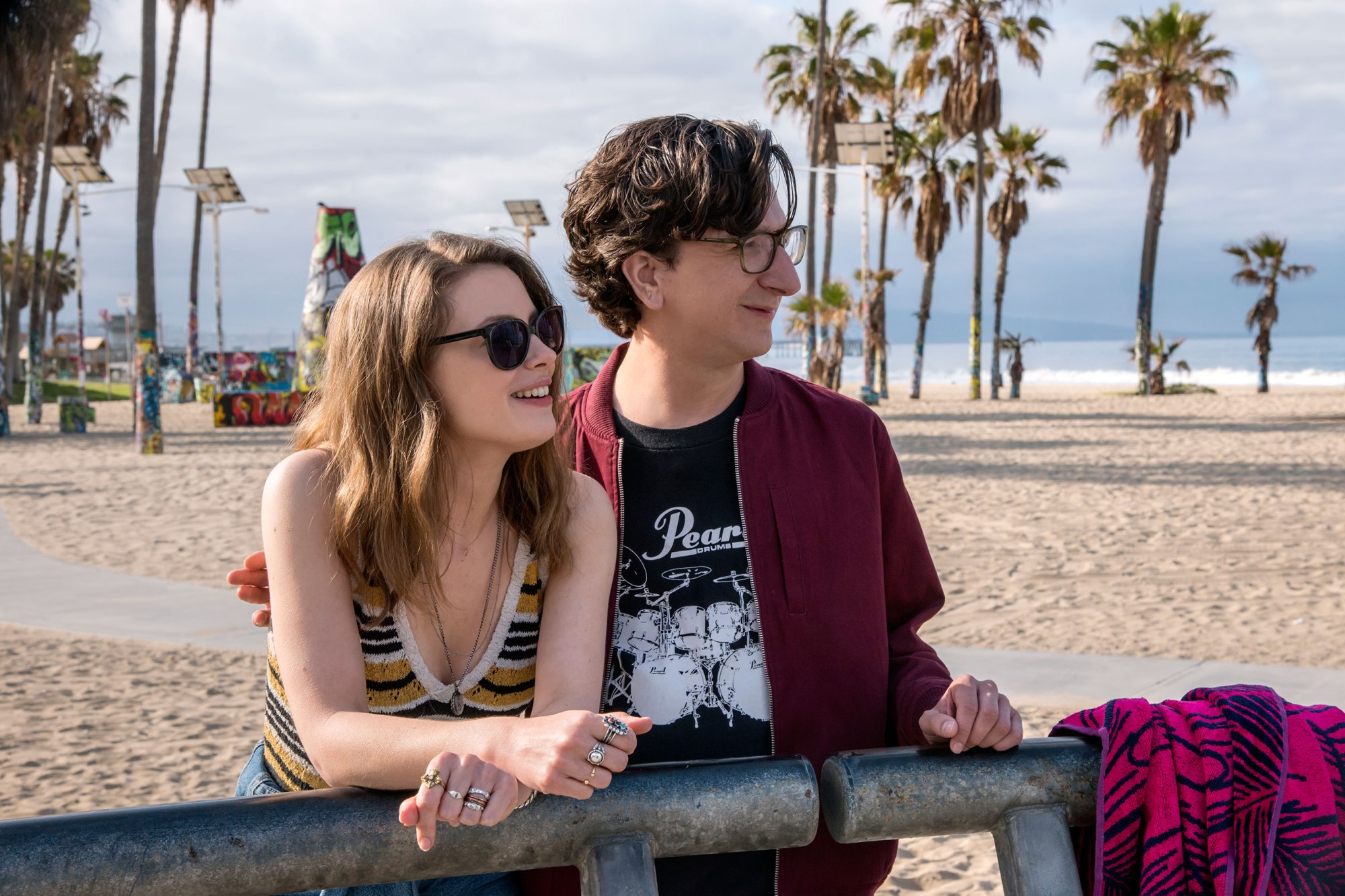
Big fan of the show, but they have the most boring promotional images of all time
Meanwhile, Mickey continues to fight her impulses to flee at the first sign of conflict or serious consideration of her and Gus’s relationship status. While she manages to almost entirely win us over this season with a dedicated attempt at quitting her various vices cold turkey, she still takes occasionally willful steps to sabotage the good things that she can call her own. A late season reunion with Dustin (Rich Sommer), her ex, is rendered as particularly pathetic and desperate, as she holds onto the tenuous fact that she and Gus aren’t technically official, electing to not even mention her tryst to Gus as she reconsiders. Nevertheless, it’s a treat to see her complete a distinct arc, coming ever closer to being able to open herself up to intimacy and allowing herself to believe that she deserves the best in life.
It’s also a treat to see season two more carefully tend to the extended supporting cast. Most notable is the increased focus on Mickey’s roommate Bertie (Claudia O’Doherty). Before I go any further, allow me to say: HOLYSHITCLAUDIAO’DOHERTYISMYQUEENIWANTONLYGOODTHINGSTOHAPPENTOHEREVERSHEISTHEMOSTADORABLETHINGONTHEFACEOFTHISEARTH.
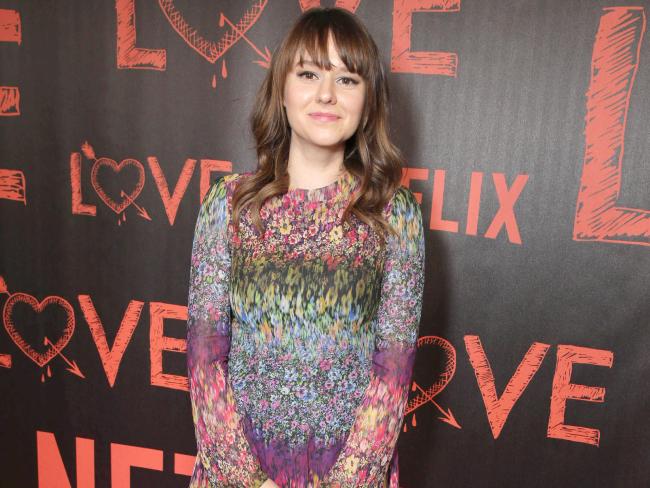
MARRY ME
Alright, now that that’s out of the way, one of season two’s strongest assets is expanding Bertie into a character with almost as much presence as Mickey and Gus. With an internal progression that’s arguably more dramatic than the leads, Bertie finally steps into her own, not being afraid to stand up to others and rally against those that continually take advantage of her. While it’s initially undescribably cute to see her find unexpected happiness with the lovable loser Randy (Mike Mitchell), it’s all the more powerful when we see Bertie be able to realize that even he is taking her kindness and generosity for granted, confidently cutting it off.
In general, the bit characters and cameos are all spot on here, especially when it comes to those related to the set of Arya’s new show, LIBERTY DOWN, in Atlanta. Although the characters we grew to know hanging around the WITCHITA set are rather unceremoniously abandoned, LIBERTY DOWN allows for the show to make some smart and subtle commentary on the state of the industry, with Victor (Jongman Kim), a Korean auteur director, at the helm of an expensive project despite not being able to communicate directly with any of the cast. Things fall to his assistant, Tommy (Randall Park), to divvy out, and the rivalry that is established between Tommy and Gus due to their warring superficial niceties is a strong play late in the game. However, the star supporting role of season two goes to none other than David Spade. Playing Arya’s sleazy, deadbeat dad the way only someone who has long been friends with Adam Sandler could, Spade turns in one of the most traditionally meritable performances of his career, barely concealing his contempt for Gus at the same time he realizes that he’s the only person he can really hang out with in Atlanta. Culminating in a hotel room party where Spade introduces Gus to the wacky world of booger sugar, I certainly hope that he’ll return as Arya and Gus’s professional relationship continues to exist.
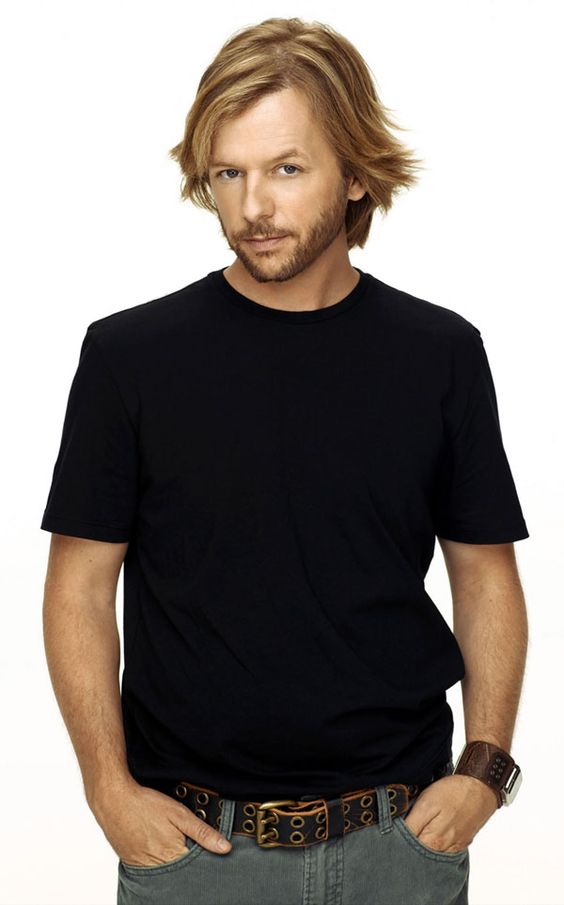
DAVID SPADE USED TO BE KINDA HOT???
Nevertheless, LOVE can’t help but fall into the same traps any content of this nature does: sometimes, it’s just there, and hard to feel anything about either way. The show’s trump card is the detailed and nuanced look it provides into the microscopic elements of a relationship that make it tick, but it’s strongest when it manages to provide these insights while still having somewhat more solidified external events propel the narrative forward. The polarizing episode of season two in this regard is “A Day,” with Gus and Mickey mostly just drifting around LA on an extended date where they open up more and more to each other. It instills the requisite fuzzies, but is also one of the least memorable, since similar thematic territory is doled out in more exciting doses elsewhere. As such, the two standout episodes are “Shrooms” and “Marty Dobbs.” The former is a perfect spec script, having Mickey babysit the severely tripping Gus, Bertie, and Randy, and is the only episode in the season that is laugh-out-loud funny, exposing everyone’s insecurities and shortcomings with an exaggerated and stylized backbone. The latter pulled the most heartstrings as far as I’m concerned, having Mickey’s dad, Marty (Daniel Stern), come to town, and offering us an insight as to the detrimental effects a parent can have on their child. Thankfully, there’s only one true stinker in the season, occurring early on with “While You Were Sleeping.” Focusing on Mickey’s unfunny and uninteresting coworker, Truman (Bobby Lee), the episode proves that the show still mostly has no idea what to do with the denizens of Mickey’s radio station apart from Dr. Greg (Brett Gelman), who has an unforgettable appearance in the “The Work Party.”
Much like love itself, LOVE is at its most powerful when it sneaks up on you, suddenly washing you away in a particularly poignant moment. As mentioned before, it’s hard to be crazy about it because of how unassuming its ambitions are, but those willing to take the time will soon find themselves engrossed in two of the most honest characters put to television. It’s hard to gauge the potential longevity of the project, as the last episode makes you step back and realize that Gus and Mickey have only known each other for a couple of months. In fact, they’ve never actually uttered the three magic words; as such, I believe the third season will have to jump us fairly far into the future to keep up our interest. If LOVE manages to have it be Gus’s turn to change in the future (Mickey does most of the work this time around), keeps its scripts meaty, and continues to stoke the emotional fire at its core, there’s no reason for it to stop being one of the more underappreciated streaming series.
Verdict: Recommend

